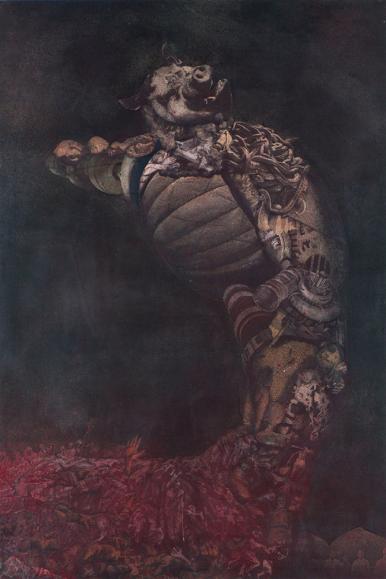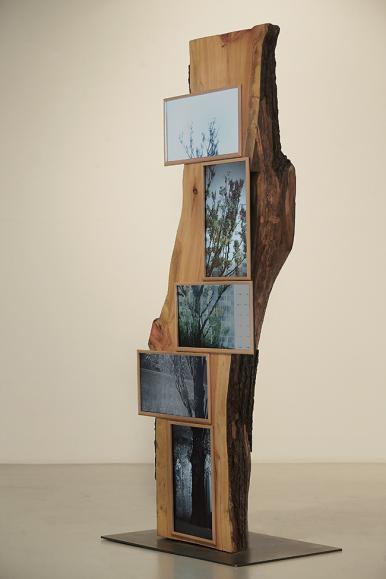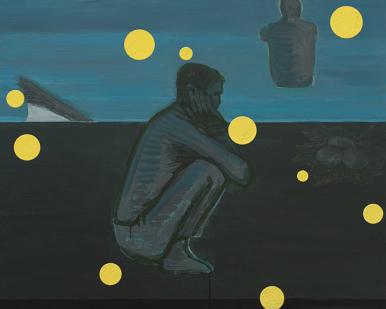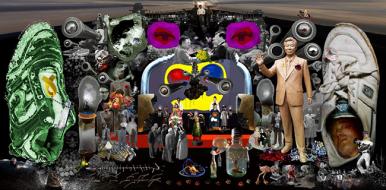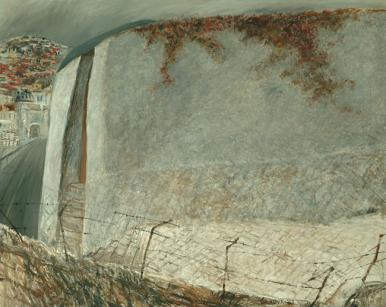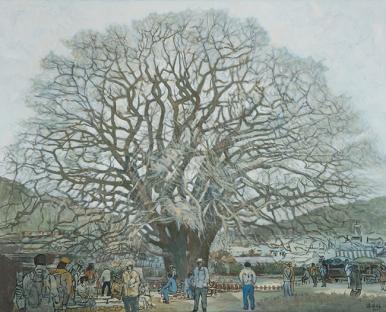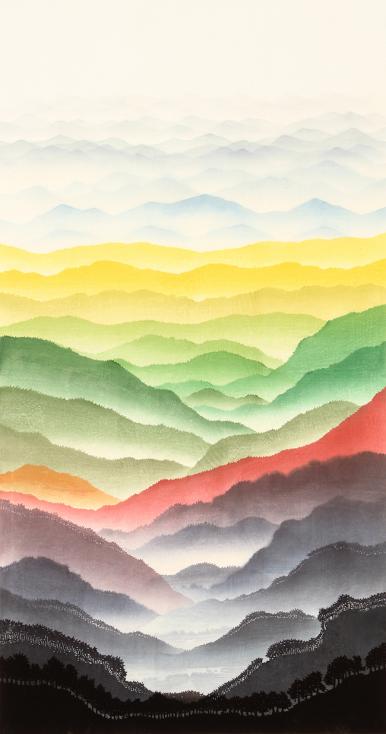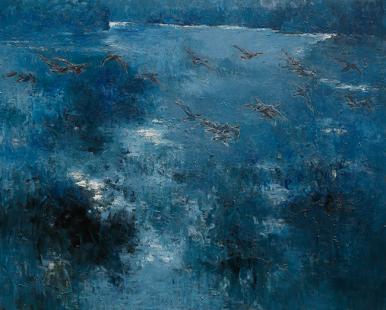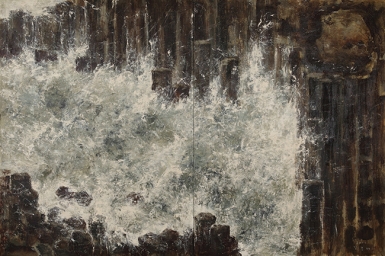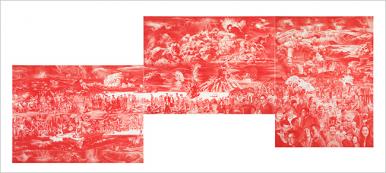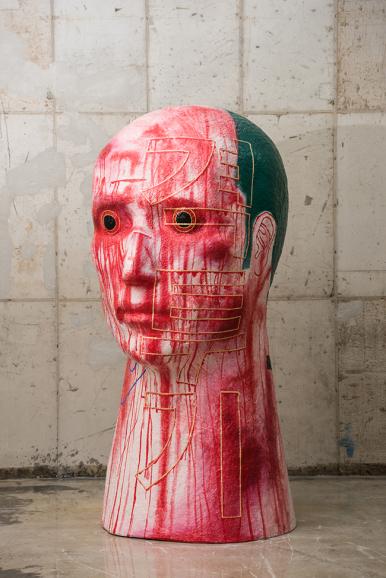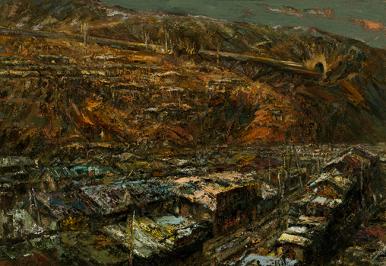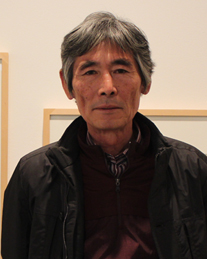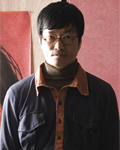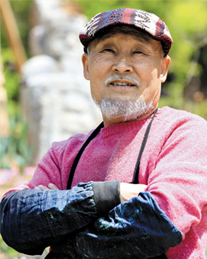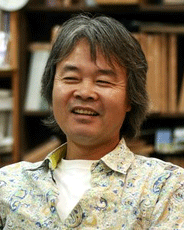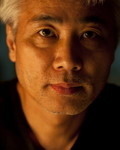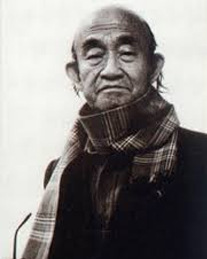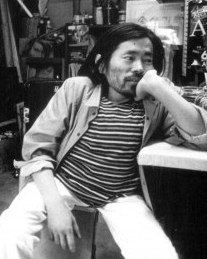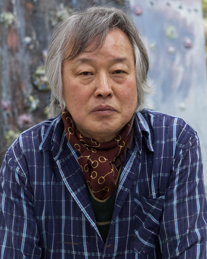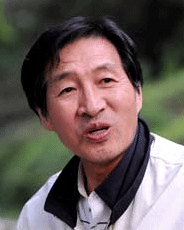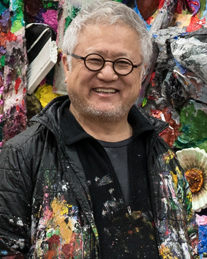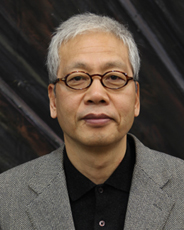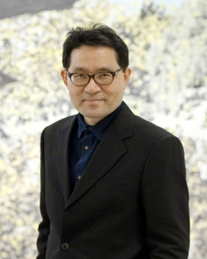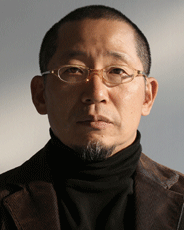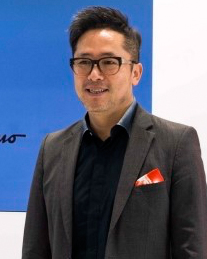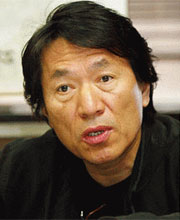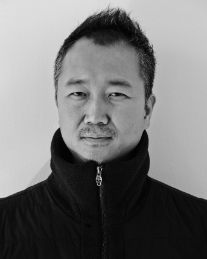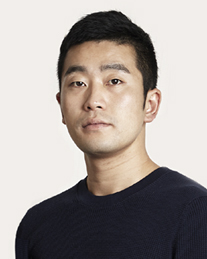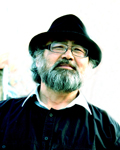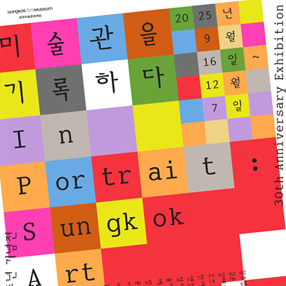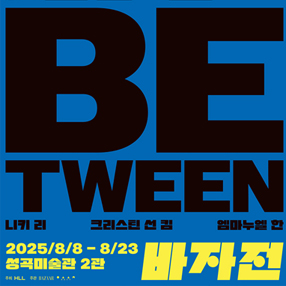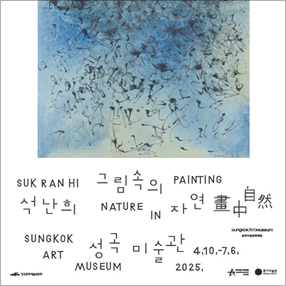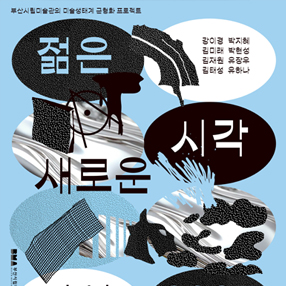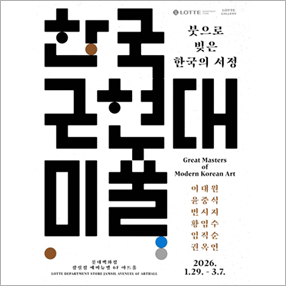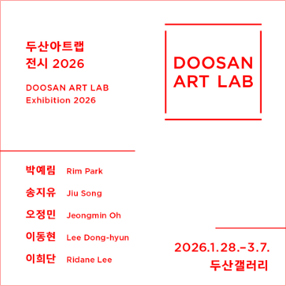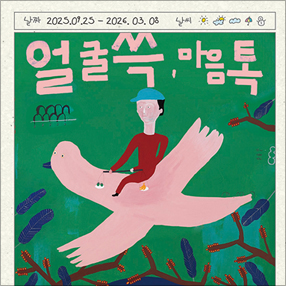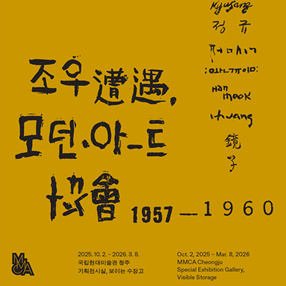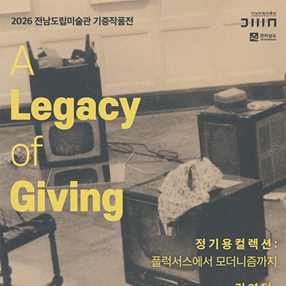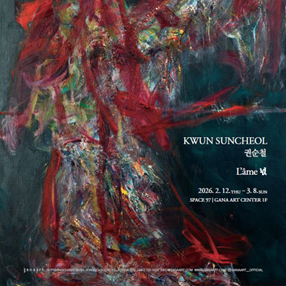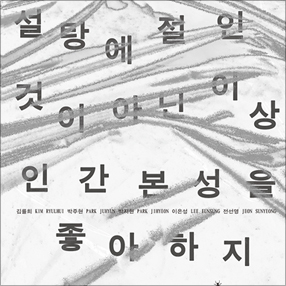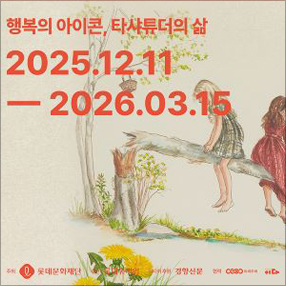본문
-
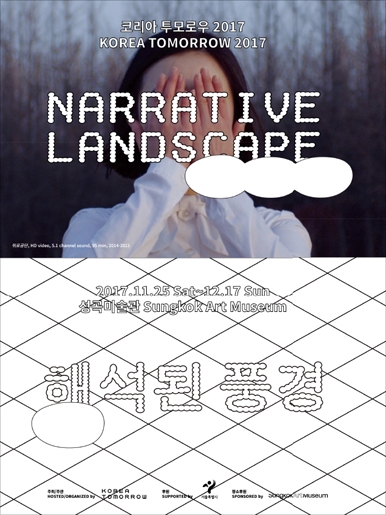
전시포스터
-
신학철
한국근대사3, collage on paper, painting, 50x74cm, 1981
금민정
통곡의나무, video sculpture (wood, 5 LED monitors, video), 250x250x250cm, 2014
김정헌
달빛이 우리를 구하다, acrylic on canvas, 72.5x91cm, 2015
박불똥
대황밍국풍경, pigment print, 148x340cm, 2017
손상기
공작도시-독립문 밖에서, oil on canvas, 161x130cm, 1984
손장섭
인천 남동구 은행나무, acrylic on canvas, 130x162cm, 2016
김준권
사계-1701, water color based woodcut, 85x159cm, 2017
송창
경계, oil on canvas, 162x130cm, 2015
강요배
파도와 총석, acrylic on canvas, 259x388cm, 2011
이세현
Between Red - 200, oil on linen, 372.5x932cm, 2014
임옥상
여기, 무릉도원 II, mixed media on canvas, 84x336cm, 2017
안창홍
눈먼자들, acrylic on synthetic resin, 213x117x110cm, 2016
Press Release
왜 ‘해석된 풍경’인가?
윤범모 (동국대 미술사학과 석좌교수)
인간은 풍경 속에서 산다. 풍경은 자연풍경으로 대표되나 인간풍경 혹은 사회풍경으로 확대되기도 한다. 인간과 자연처럼 예술작품 소재로 각광을 받고 있는 부분도 드물다. 문제는 풍경을 어떻게 수용하는가, 여기에 있다. 풍경을 발견하고, 또 이를 해석하는 작업, 이것이 예술행위와 맞물리기 때문이다.
일본의 문학평론가 가라타니 고진은 그의 ‘풍경론’에서 전통문학에서 근대문학으로의 이행은 곧 ‘풍경의 발견’이라고 주장했다. 풍경은 무엇을 의미하는 인식의 틀이기 때문이다. 그래서 풍경의 탄생은 내적 인간의 탄생을 의미한다. 풍경의 발견, 여기에 근대적 사유의 과정이 담겨 있다. 예술가에게 있어 풍경은 발견되어지는 그 무엇이다. 또 풍경은 해석되어지는 대상이다. 훌륭한 작품은 작가의 독자적 해석을 담고 있다. 극단적으로 말하여, 해석 없는 작품은 좋은 작품이라 말할 수 없다. 작가 나름의 독창적 시각, 그것이 곧 해석이다. 사물과 소재는 해석을 기다리고 있다. 미술의 장식화 혹은 상품화 현상이 두드러지고 있는 작금의 상황에서 ‘해석’의 의미는 더욱 중요하다.
이번 전시는 ‘해석된 풍경’이라는 주제의식을 제시하고자 한다. 물론 여기서 풍경은 자연 그 자체 이외 인간과 사회까지 아우르고자 한다. 전시 범주는 ‘자연 그리고 인간+사회’, 이런 형식으로 골간을 세울 것이다. 출품작의 내용에 따라 전시구성과 소주제의 설정이 신축성 있게 달라질 수 있다. 문제는 해석이다. 그래서 스마트 폰으로 기념촬영 하듯 단순 재현은 의미가 약하다. 뚜렷한 해석의 과정이 없다면 특히 그렇다. 단순 재현에서 해석된 풍경, 작가의 독창적 발언을 기대하기 때문이다.
이번 전시의 숨은 의도 가운데 하나는 형상미술 혹은 리얼리즘 미술의 재조명에 있다. 1980년대 이래 숨 가쁘게 전진해 온 리얼리즘 미술의 발자취와 그 변모된 과정을 살펴보고자 한다. 그래서 과거의 주역들을 중심으로 하여 신진 청년세대에게까지 작가 참여의 폭을 넓혔다. 풍경은 해석을 요구하고 있다. 발견되고 해석된 풍경의 의미는 달리 전달된다. 오늘의 현실에서 우리의 풍경은 어떤 얼굴을 하고 있는가. 이번 전시는 그 좌표 확인 작업이라고 믿고 싶다.
아티스트 토크:
12월2일(토) 2pm-5pm: 강요배, 김준권, 신학철
12월 9일(토) 2pm-5pm: 유근택, 임옥상, 홍선웅
12월 16일(토) 2pm-5pm: 박불똥, 이종구, 황재형
Narrative Landscape
Humans live within landscapes. The idea of “landscape”, represented mainly by natural landscapes, can also expand to include human or social landscapes. It is also rare for art that takes on the topic of humans and nature to be the subject of attention. The problem is in how landscapes are accepted. Works that discover and narrate landscapes are closely connected to the act of art itself.
The Japanese cultural critic Kojin Karatani claimed in his theory of landscape that the movement from traditional literature to modern literature lies in the ‘discovery of landscape,’ and our awareness of landscape as something with meaning. The birth of landscape thus means the birth of the interior human. The discovery of landscape embodies the process of modern thought. Landscape, in turn, is what artists discover. It is also the subject of narrative. Exceptional works of art are imbued with the artist’s independent narrative. Taken to an extreme, we can say that a work of art without a narrative cannot be a good work of art. Narrative is the artist’s uniquely creative point of view. Objects and materials await narrative. In today’s world in which art is treated as a decoration or commodity, the meaning of “narrative” is all the more important.
This exhibition proposes “narrative landscape” as its subject. Here, of course, we intend “landscape” to encompass human and social landscapes outside of nature itself. The exhibition’s categories are based on the framework of “nature and humans + society.” The overall exhibition composition and configuration of its subcategories differs flexibly depending on the content of the individual works. The problem lies in narration. For this reason, simple representations like commemorative videos taken with a smartphone are weak in meaning. This is especially the case in the absence of a clear narrative; landscapes narrated through simple representation depend on the creative pronouncements of artists.
One of the hidden intentions of this exhibition is the reevaluation of figurative art and realism. This exhibition seeks to examine the development of the art of realism that has advanced rapidly since the 1980s, as well as the transformation of its processes. The scope of the exhibition has expanded to focus on those who played leading roles in the past as well as a new generation of artists. Landscapes require narratives. The meaning of discovered and narrated landscapes is conveyed in different ways. What is the face of our landscape in today’s reality? I believe that this exhibition works towards identifying its coordinates.전시제목코리아 투모로우 2017 전
전시기간2017.11.25(토) - 2017.12.17(일)
참여작가 강요배, 금민정, 김성룡, 김정헌, 김준권, 김지원, 박불똥, 박생광, 손상기, 손장섭, 송창, 신학철, 안성석, 안창홍, 오원배, 유근택, 이명복, 이세현, 이제훈, 이종구, 임옥상, 임흥순, 장종완, 조혜진, 홍선웅, 황용엽, 황재형
관람시간화~일요일 10:00am - 07:00pm
* 전시종료 30분전 매표 및 입장 마감휴관일월요일 휴관
장르회화
관람료일반 (만 19세 - 64세): 10,000원
청소년 (만 12세 - 18세): 8,000원
어린이 (만 4세 - 11세): 8,000원
국가유공자, 장애인, 만 65세 이상: 8,000원
*단체 관람 20인 이상 학생단체: 50% 할인장소성곡미술관 Sungkok Art Museum (서울 종로구 경희궁길 42 (신문로2가, 성곡미술관) )
연락처02.737.7650
Artists in This Show
1952년 제주출생
1962년 출생
1956년 전라남도 영암출생
1961년 경기도 과천출생
1956년 경상남도 하동출생
1904년 경남 진주출생
1949년 전라남도 여수출생
1952년 전남 장성출생
1943년 경북 김천출생
1953년 경상남도 밀양출생
1953년 인천출생
1965년 충청남도 아산출생
1958년 출생
1967년 경남 통영출생
1950년 충청남도 부여출생
1969년 출생
1983년 부산출생
1952년 전라남도 보성출생
성곡미술관(Sungkok Art Museum) Shows on Mu:um
Current Shows




